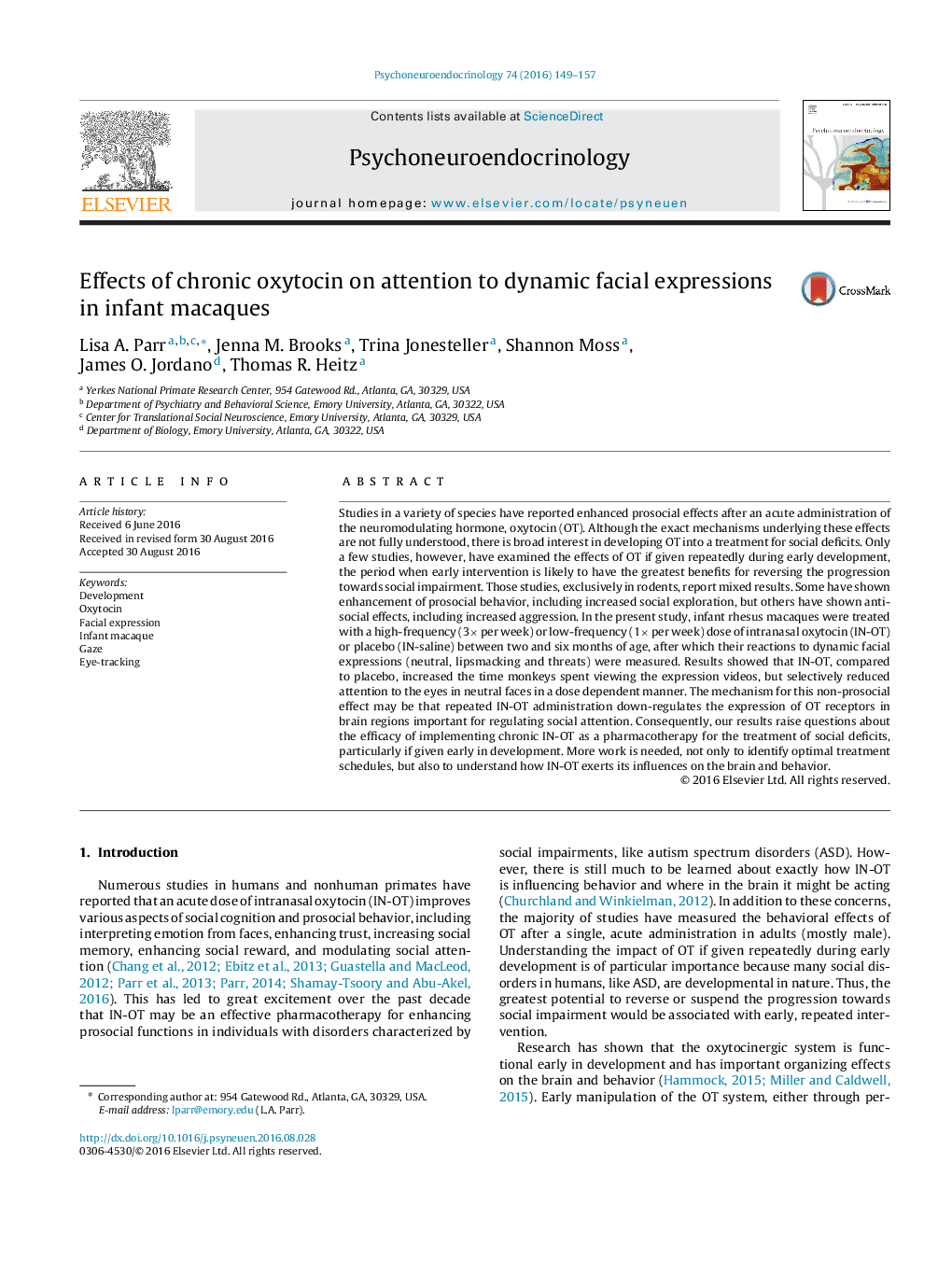| Article ID | Journal | Published Year | Pages | File Type |
|---|---|---|---|---|
| 4934671 | Psychoneuroendocrinology | 2016 | 9 Pages |
Abstract
Studies in a variety of species have reported enhanced prosocial effects after an acute administration of the neuromodulating hormone, oxytocin (OT). Although the exact mechanisms underlying these effects are not fully understood, there is broad interest in developing OT into a treatment for social deficits. Only a few studies, however, have examined the effects of OT if given repeatedly during early development, the period when early intervention is likely to have the greatest benefits for reversing the progression towards social impairment. Those studies, exclusively in rodents, report mixed results. Some have shown enhancement of prosocial behavior, including increased social exploration, but others have shown anti-social effects, including increased aggression. In the present study, infant rhesus macaques were treated with a high-frequency (3Ã per week) or low-frequency (1Ã per week) dose of intranasal oxytocin (IN-OT) or placebo (IN-saline) between two and six months of age, after which their reactions to dynamic facial expressions (neutral, lipsmacking and threats) were measured. Results showed that IN-OT, compared to placebo, increased the time monkeys spent viewing the expression videos, but selectively reduced attention to the eyes in neutral faces in a dose dependent manner. The mechanism for this non-prosocial effect may be that repeated IN-OT administration down-regulates the expression of OT receptors in brain regions important for regulating social attention. Consequently, our results raise questions about the efficacy of implementing chronic IN-OT as a pharmacotherapy for the treatment of social deficits, particularly if given early in development. More work is needed, not only to identify optimal treatment schedules, but also to understand how IN-OT exerts its influences on the brain and behavior.
Related Topics
Life Sciences
Biochemistry, Genetics and Molecular Biology
Endocrinology
Authors
Lisa A. Parr, Jenna M. Brooks, Trina Jonesteller, Shannon Moss, James O. Jordano, Thomas R. Heitz,
